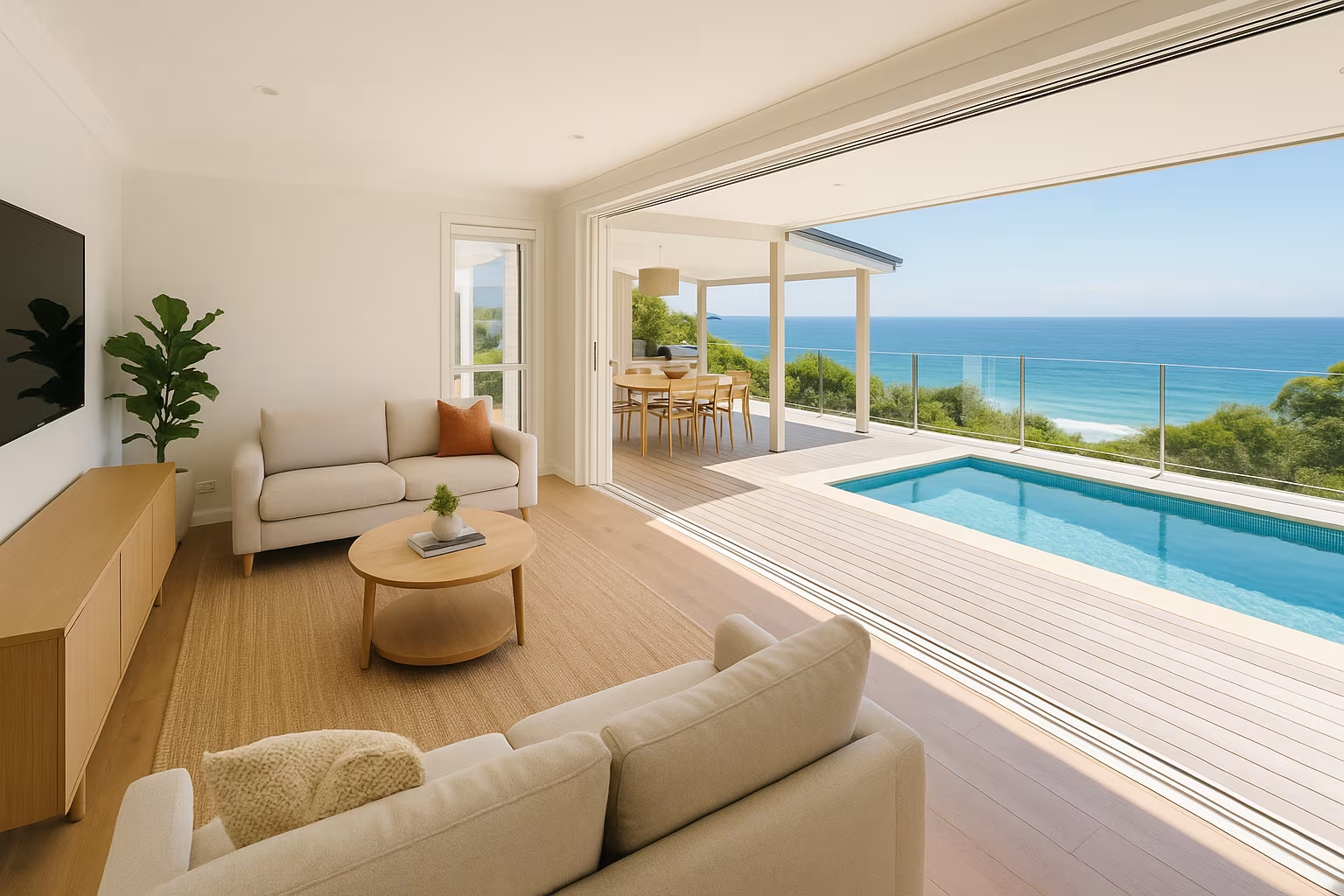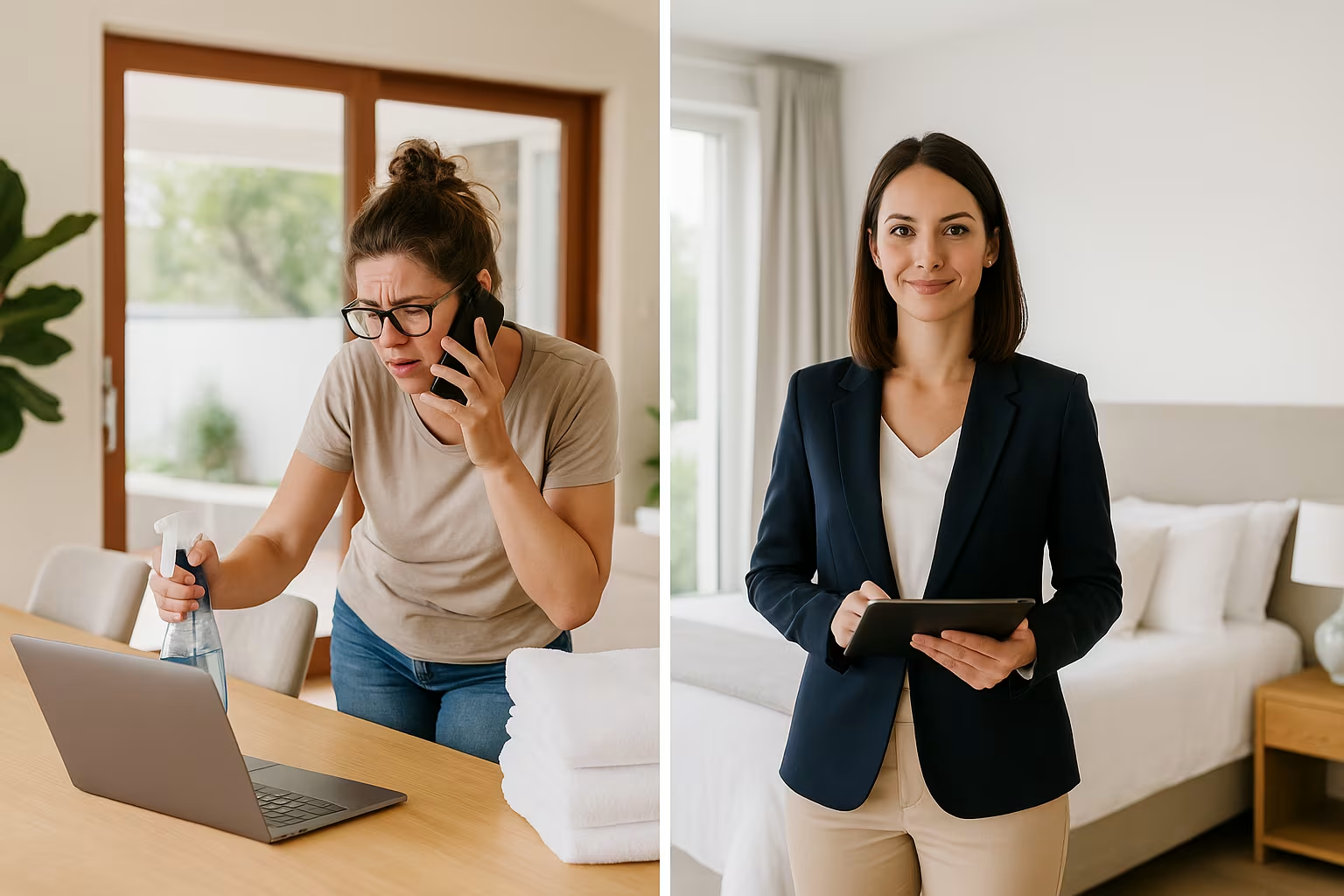Australia is getting vaccinated, here's what's next

COVID-19 vaccination rates in Australia are surging ahead and fast closing the first thresholds toward ending lockdowns and re-opening borders.
Based on previous trends, forward accommodation bookings, and the travel industry experience overseas (in countries with more advanced vaccination rates) here's what we can expect for short-term rental demand when Australia begins to re-open.

Australia's fast-rising vaccination rates
As of the start of September 2021, almost 21 million vaccines have been administered in Australia, representing over 63% of the eligible population receiving at least one dose and close to 40% for two doses.
In the week commencing 23 August, over 1.7 vaccine doses were administered - more than double the weekly number just a month earlier.

New South Wales and the ACT are leading the charge with the highest number of vaccines administered and among the top states by vaccinations of the eligible population (around 66% with least one dose). Vaccine supply is ramping up quickly with a raft of dose swap deals such as with Singapore and the UK, increasing the availability of the Pfizer vaccine.
Major companies such as Virgin are already offering incentives and prizes for vaccinated customers, while large employers such as Telstra are mandating vaccinations for front line staff. Proof of vaccination is expected to be necessary in the coming months to access activities such as dining and travel, encouraging mass uptake.
Moving on from lockdowns
Based on the government's four-phase plan and modelling from the Doherty Institute, lockdowns are expected to be far less likely once a 70%+ vaccine target is achieved, setting the stage for high travel and accommodation demand in time for the peak spring/summer travel seasons.
Return of home quarantine will drive demand for extended stays and high occupancy
Once key vaccination targets are hit, the government has indicated that home quarantine for overseas arrivals will return in most cases to replace the current hotel quarantine program.
This is expected to significantly increase demand for short-term rental accommodation with many overseas returnees requiring temporary accommodation for at least 14 consecutive days if they don't have an alternative or home address to stay in.
Immediately following the closure of international borders in Australia at the start of the pandemic in March 2020, MadeComfy saw a dramatic increase in short-term rental bookings for 2 or week of longer stays before the hotel quarantine program was introduced.

Peak travel season and pent-up demand set to drive holiday accommodation shortage and nightly rates
After almost two years of snap lockdowns and work from home fatigue, pent-up demand for travel is expected to be high once restrictions ease.
Average nightly rates for forward bookings at MadeComfy properties rise significantly toward the end of the year, as guests seek to secure accommodation prior to the peak summer holiday season.

This is particularly the case in the seasonal destination hotspots of Queensland and New South Wales, where forward booked average nightly rates are currently in excess of $350.
This is in part due to declining active short-term rental listings across the country, with fewer available properties to book in major destination markets. In Sydney for example, there are currently less than half the number of listings available on the short-term rental market as there were pre-pandemic (January 2020).

Analysing the overseas travel recovery
Airbnb's second quarter results announcement revealed a dramatic rise in short-term rental bookings globally, exceeding pre-pandemic levels and driven by countries with advanced vaccination rates such as the US, UK, as well as in Europe.
“Gross nights booked for cross-border travel within Europe were higher in June 2021 than in June 2019...Travel to high-density urban areas increased in Q2 from Q1 2021, and in the US, searches for stays in high-density urban areas almost doubled in June 2021 compared to January 2021”
— Airbnb
The strong bounce back post-lockdowns are also seen in short-term rental occupancy rates in the United States, recording their highest April to June levels, significantly above even pre-pandemic 2018 and 2019 trend.

This trend was also supported by reports of significant rate increases as popular destination cities faced a shortage of available accommodation due to owners previously pulling out of the short-term rental market.
Get your property ready for short-term rentals
As Australia’s vaccination rates surge and borders prepare to reopen, pent-up travel demand is set to ignite a short-term rental boom—driving higher occupancy, longer stays, and record nightly rates. With supply dwindling and forward bookings already skyrocketing, property owners who act now will be best positioned to capitalize on the wave of returning travelers. Now is the time to start planning your short-term rental strategy for the travel re-opening.
CONTACT US at MadeComfy today to find out how much your property could earn.













